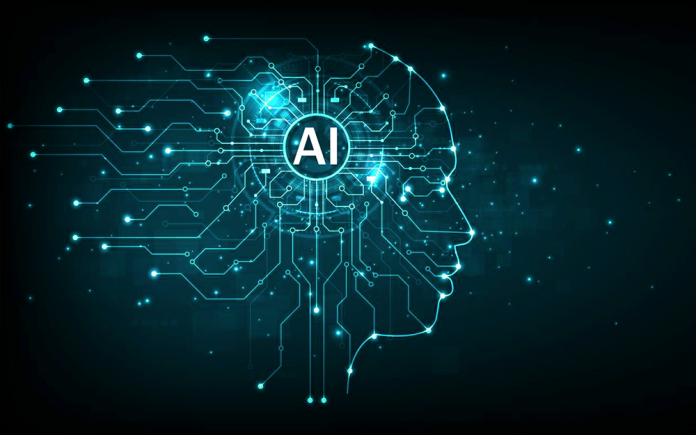
Thrilling Breakthroughs to Ethical Concerns
By Dennis Shelly
The future of the A.I. revolution is a topic that has been gaining interest in recent years. 2023 marked a turning point in public perception as artificial intelligence (A.I.) took center stage, captivating the imaginations and concerns of many. According to Goldman Sachs, 2024 is poised to witness the shift of generative A.I. from excitement to deployment, with the potential to boost global GDP by up to 7% in the next decade.
As A.I. continues to evolve and become more advanced, there are concerns about the potential risks and benefits of this technology. We don’t know how A.I. will affect us in the long run, but we can guess what might happen in the next few years.Top of Form In this article, we will explore some of the key benefits and the issues surrounding the future of artificial intelligence.
The Evolution and Phases of A.I.
A.I. has evolved in three main phases:
- Artificial Narrow Intelligence (ANI): The current state of A.I., including technologies like ChatGPT, is designed for specific tasks and lacks a deep understanding of data. It excels in goal-oriented functions such as driving a car or predicting outcomes.
- Artificial General Intelligence (AGI): The next step in A.I. evolution, AGI can handle a variety of tasks without a specific purpose. It mimics human reasoning and can adapt intelligence to different contexts, making it hard to distinguish from human problem-solving.
- Artificial Super Intelligence (ASI): Currently hypothetical, ASI represents a self-aware A.I. surpassing human capability. The behavior and workings of such an A.I. remain unknown, as it goes beyond our current understanding of artificial intelligence.
Analytical, Generative, and Predictive A.I.
Analytical A.I. is used to analyze data and make predictions based on that data. Generative A.I. is used to create new content, such as images, videos, and music. Predictive A.I. is used to make predictions about future events based on historical data.
Understanding Generative A.I.
While traditional A.I. focuses on classification tasks and analytical parts, generative AI is considered as the next phase. This transformative technology allows machines not only to think but to teach themselves to think in complex and creative ways beyond human capacity. The evolution from analytical to generative and, ultimately, interactive marks the future of A.I..
A.I. as a Personal Assistant
As A.I. continues to evolve, it is likely that it will become an even more important part of our lives. A.I. is expected to be a personal assistant for everyone, engaging in natural conversations, learning from users, and executing tasks. This includes making complex arrangements, such as planning a trip, booking tickets, and even ordering books. The prospect of A.I.-driven personal assistants promises efficiency and convenience on a scale never seen before. A.I. is already being used as a personal assistant in many different ways. For example, virtual assistants like Siri and Alexa are used to help people with tasks like scheduling appointments and setting reminders.
One of the most intriguing aspects of future A.I. is the emphasis on emotional intelligence. For example. PI (Personal Intelligence) is an A.I. tool designed to excel in emotional intelligence, actively listening, presenting different perspectives, and demonstrating empathy. It can be argued that emotional support from A.I. companions will be invaluable to millions, filling a void for those lacking a strong support system.
Examples of A.I. tools currently available.
There are many different A.I. tools currently available that are being used in a variety of different ways. Some of the A.I. tools currently available include:
ChatGPT: An A.I. tool built by OpenAI that enables conversational automation, allowing businesses to engage with customers more effectively.
Jasper: A generative A.I. software that helps users create engaging content for various platforms, streamlining the content creation process.
GrammarlyGo: A tool that provides unique features such as understanding the context of your website and generating relevant and engaging content, improving user experience.
Copy.ai: An A.I. tool for generating content that helps users create high-quality, optimized website content, boosting SEO and user engagement.
Rytr: An A.I. tool for content generation that helps users create human-like, high-quality content for various applications, improving the overall user experience.
Google Bard: An A.I. tool for automating the process of creating narration and voiceovers, streamlining the content creation process, and enhancing user experience.
DALL-E 3: An A.I. tool for image retouching that allows users to remove unwanted objects, defects, or even people from images, improving the quality of visual media.
Lumen5: An A.I. tool for video creation from text, automating the process of creating narration and voiceovers, and enhancing user experience in video production.
Containing A.I. – will humans lose control?
There are concerns that A.I. could become so advanced that humans will lose control of it. This could lead to a situation where A.I. is used to cause harm or be used in ways that are unethical. Moreover, there are concerns that A.I. could become so advanced that it could pose a threat to humanity. Over 350 computer scientists and tech executives signed a statement emphasizing the global priority of mitigating A.I. risks.
Containing A.I. and retaining human control requires proactive measures, ethical considerations, and a collective commitment to shaping a future where A.I. augments human capabilities without compromising our autonomy. It is important that we develop regulations and safeguards to ensure that A.I. is developed and used in a responsible manner. Governments and organizations around the world are working to develop regulations that will ensure that A.I. is developed and used in a responsible manner.
To Conclude
The future of the A.I. revolution is a topic that is of great importance to people around the world. We stand on the brink of the A.I. revolution, where generative A.I. and interactive personal assistants become integral parts of our daily lives. The convergence of technology and emotional intelligence opens new avenues for human-machine collaboration, promising a more connected and supportive world in the coming years.
While there are concerns about the potential risks and benefits of this technology, it is clear that A.I. has the potential to revolutionize many different aspects of our lives. It is important that we develop regulations and safeguards to ensure that A.I. is developed and used in a responsible manner.
Questions or suggestions? Please contact us by visiting our website at www.eggheadit.com, by calling (760) 205-0105, or by emailing us at tech@eggheadit.com with your questions, or suggestions for our next article.
IT | Networks | Security | Voice | Data










































